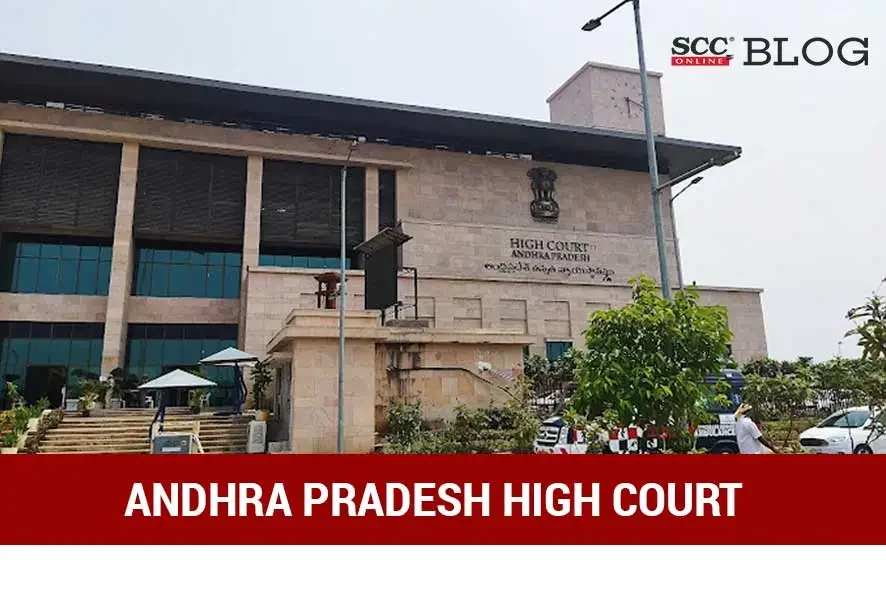Andhra Pradesh High Court: In an appeal filed against the judgment dated 03-07-2009, A.V. Ravindra Babu, J.*, opined that the Trial Court exonerated Accused 1 and 2 on the ground that no Adangal was filed to show that they cultivated the land, but the same logic was not applied to the appellant who was not even physically present in the land and the criminal liability against the appellant was fastened, based on the version of Accused 1 and 2. The Court opined that the whole approach of the Trial Court in appreciating the evidence on record was not in accordance with the law. Thus, the Court opined that there was no legally admissible evidence against the present appellant so as to convict him under Section 20(a)(i) of the Narcotic Drugs and Psychotropic Substances Act, 1985 (‘NDPS Act’) and accordingly, acquitted the appellant of the charge and set aside the impugned judgement passed by the Trial Court.
Background
On 28-08-2004, Prohibition and Excise Party (‘Excise Party’) along with the mediators made a visit to the land owned by the appellant and found Accused 1 and 2 attending the agricultural work at 9.30 am. Thereafter, the Excise Party entered into the land and found the Ganja plants being raised as mixed crop in the cotton crop.
After the disclosure that the appellant was the owner of the land, the appellant was also brought to the land by the police. All the Ganja plants were uprooted, and two of them were separately taken up for sample. The sample Ganja plants were sent to the chemical examiner who opined that these samples were of Ganja. The Excise Party arrested Accused 1, 2 and the appellant.
The Additional Sessions Judge (‘the Trial Court’) framed a charge under Section 20(a)(i) of the NDPS Act and after considering all the oral and documentary evidence, found that Accused 1 and 2 were not guilty of charge and thus acquitted them under Section 235(1) of the Criminal Procedure Code, 1973 (‘CrPC’). The appellant was found guilty and was thus convicted under Section 235(2) of the CrPC. Thus, the appellant filed the present appeal.
Analysis, Law, and Decision
The Court opined that the evidence on record disclosed that except the testimonies of the witnesses who were the Prohibition and Excise officials, there was nothing else in the support to convict the appellant. The Court opined that it was not a case where the appellant was physically found in the land cultivating Ganja along with Accused 1 and 2, and it was also not the case that the appellant was physically giving instructions to Accused 1 and 2 for carrying out agricultural operation. The Excise Party did not examine any revenue officials to ascertain as to who were in the possession of the land in question.
The Court further opined that the judgment of the Trial Court revealed that the negative burden was put on the appellant stating that if the appellant was really not the owner or possessor of the land, he had to file the documentary proof to prove the said aspect. The Court took note of the Trial Court’s finding that there were specific recitals in the mahazarnama, wherein Accused 1 and 2 had disclosed that the land belonged to the appellant and thus opined that these findings of the Trial Court were not at all sustainable under the law.
The Court further opined that to prove that the appellant was the owner or possessor of the land, proper evidence was to examine the neighbouring land owners, revenue officials or to produce the relevant revenue records, however, these things were not compiled by the investigating officer. The Court opined that it was rather surprising that on the version of Accused 1 and 2, just by securing the appellant’s presence to the fields, criminal liability was fastened against the appellant.
The Court opined that the gist of the offence under Section 20(a) of the NDPS Act coupled with the prohibition contained in Section 8 of the NDPS Act was that “the cultivation of Ganja by any offender could be direct or indirect, that is, the offender might cultivate the land personally or through somebody else by employing some coolies or labourers”. The Court opined that the Trial Court exonerated Accused 1 and 2 on the ground that no Adangal was filed to show that they cultivated the land, but the same logic was not applied to the appellant who was not even physically present in the land and the criminal liability against the appellant was fastened, based on the version of Accused 1 and 2. The Court opined that the whole approach of the Trial Court in appreciating the evidence on record was not in accordance with the law.
The Court opined that there was no legally admissible evidence against the appellant to convict him under Section 20(a)(i) of the NDPS Act and accordingly, acquitted the appellant of the charge and set aside the impugned judgement passed by the Trial Court.
[K. Chinna Rami Reddy v. State, 2023 SCC OnLine AP 3876, decided on 14-12-2023]
*Judgment authored by: Justice A.V. Ravindra Babu
Advocates who appeared in this case :
For the Appellant: Shaik Mohammed Ismail, Advocate;








